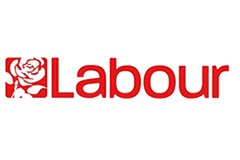It is a long time since a northern constituency could boast a Prime Minister. The late Harold Wilson, who represented the Merseyside constituency of Huyton, was the last northerner to hold the highest office, and he vacated number 10 back in 1976.
However, the regions wait for another PM is coming to an end, certainly if chancellor George Osborne MP for Tatton, Cheshire, has anything to do with it.
His Northern Powerhouse agenda has dominated the debate and discussion of local government and many in the media for over a year now. The powers he has ceded to Manchester, and is prepared to offer other local authorities who are able to provide proof positive that they can deliver – with a metro mayor – has won him the reputation as an innovator who wants to genuinely try new things to re-balance the UK economy.
That he has done this in partnership with (mostly) Labour council leaders is testament to his impressive negotiation skills, matched only by his ability to spin.
A whole list of announcements on spending in the north, most particularly on infrastructure projects, looks like ‘new’ money. Often it is cash that local councils’ themselves have had to find from ‘efficiencies’.
His incredible persuasiveness in convincing his former treasury colleague and coalition mate, Lib Dem Daniel Alexander, to do the tour of television and radio studios every time there was bad news to sell, whilst Osborne himself saved his brief appearances for the ‘feel good’ pronouncements should be noted too. I’m sure it is something the now former MP Alexander has reflected upon since being permitted by his constituents to spend more time with his family.
But, it is the chancellor’s activity since the election that is most impressive. Surprised though he and his next door neighbour Dave were in securing a victory, he has had the air of a man who has hit the ground running, and has a plan to get on and deliver.
His spring budget included a host of policies that will see a greater acceleration of the shrinking of the state and public sector services. He has cut taxes, and will continue to do so during the lifetime of this parliament. And he unashamedly stole Labour’s ‘Living Wage’ policy whilst he was at it.
Now he is preparing a blitzkrieg on the official opposition’s next leader. If, as is predicted, it is Jeremy Corbyn, he knows that his only problem will be weighing the votes that his party will get in the marginal constituencies across the country.
However, he is not one for complacency, George. So expect legislation around Trades Union laws; immigration; the economy and welfare throughout an autumn that will be set full of Westminster traps for the Parliamentary Labour Party.
Osborne wants to cement in voters’ minds the notion that Labour has turned into a ‘loony left’ protest group that is as out of touch with reality as Lord Sutches old ‘Raving Loony’ party.
Once this mission is accomplished, he will be quickly on to his next project. Succeeding Dave in an orderly manner and, in the nicest possible way, ‘doing in’ his closest rivals for the number one job, Teresa May and Boris.
Prime Minister Osborne? At this stage, you wouldn’t bet against him.






